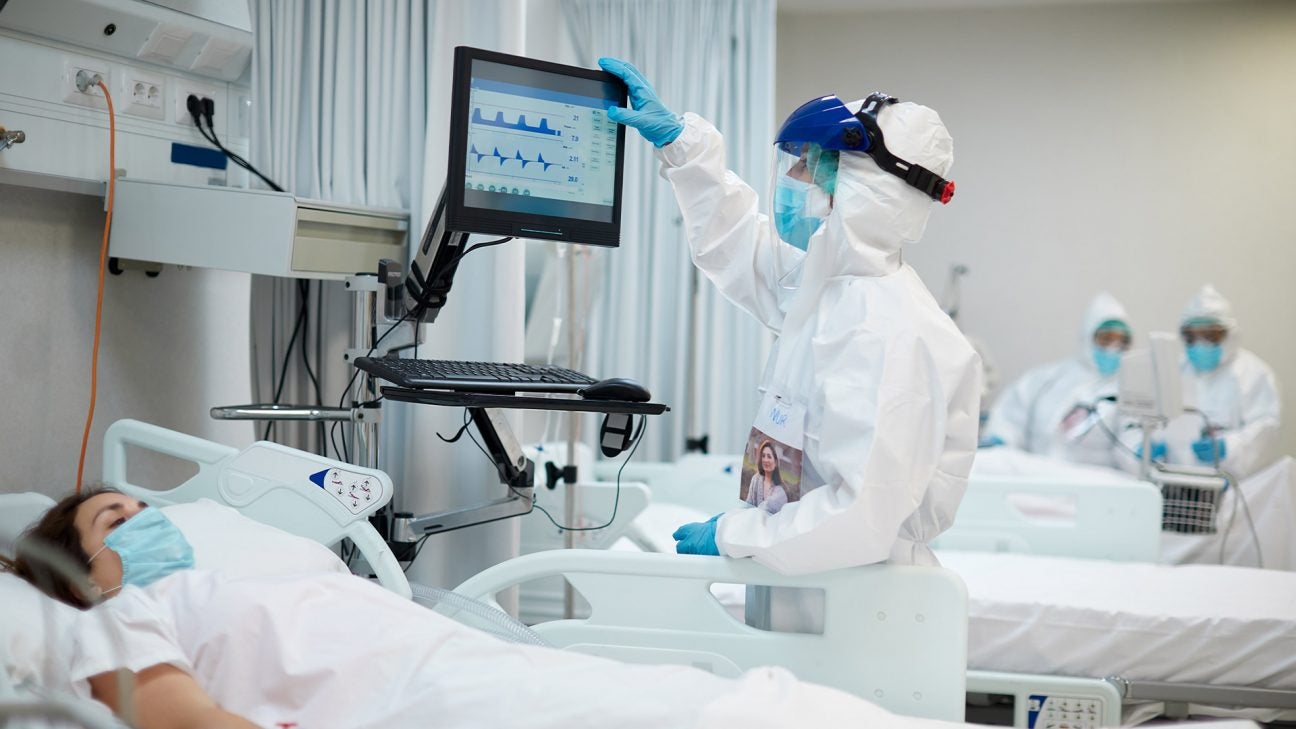
- COVID-19 may be more under control, but it hasn’t disappeared in the United States.
- Nearly 2,000 are still being hospitalized for COVID-19 every week in the United States.
- The rise of the more infectious delta variant means people who have not yet been vaccinated could be at higher risk of developing the disease.
COVID-19 hospitalization rates are falling nationwide, but that doesn’t mean no one is getting sick.
The current 7-day average for hospitalizations is still 1,764 COVID-19 hospitalizations per week. The virus may be more under control, but it hasn’t disappeared in the United States.
Where hospitalization rates remain high, the patients have one thing in common: They are unvaccinated. As a result, more young people are being admitted to hospitals. Older people and those with underlying conditions have high rates of vaccination.
“It’s true. Nationally, as well as in our own institution, the vast majority of people being hospitalized are un- or partially vaccinated,” said Dr. William Schaffner, professor of Preventive Medicine in the Department of Health Policy and professor of Medicine in the Division of Infectious Diseases at Vanderbilt University School of Medicine. “That’s over 90 percent of individuals. That offers very powerful evidence that the vaccine is working.”
As of June 28, 77.7 percent of adults over the age of 65 are fully vaccinated. That number drops as age drops, but the percentages are still high. More than 57 percent of adults over the age of 18 are fully vaccinated, and more than 54 percent of the population over age 12 is fully vaccinated.
According to the Centers for Disease Control and Prevention (CDC), the overall number of hospitalizations is going down, but the people affected are increasingly young. Now, people between ages 18 to 49 are making up a larger percentage of those hospitalized.
“Initially when COVID struck, it was older people who were in the hospital,” said Schaffner. “That demographic has changed. It’s now the middle-aged and younger in the dominant group. That goes with information concerning who is vaccinated.”
How does the delta variant affect hospitalizations?
The delta variant, which is even more contagious than its predecessors, is now causing concern among medical professionals. It was first identified in India and has gone from making up just 1 percent of COVID-19 cases in the United States to over 20 percent in recent weeks, according to Schaffner. With vaccinations going up and positive test cases falling, experts wonder whether we are destined to be headed in the wrong direction because of the delta variant.
“[As of June 23], the CDC says that 23 percent of the cases they have sequenced are this new delta variant, which is a striking proportion,” said Schaffner. “It speaks to the great contagiousness of this virus. We have seen in this country a virus that is very adept at seeking out people who continue to be unvaccinated.”
Experts say all evidence points to the current vaccine regimen being effective against the delta variant
“The good news about the current COVID-19 vaccines is that it appears to be effective against the newly emerging delta variant,” said Dr. Teresa Murray Amato, director of emergency medicine at Long Island Jewish Forest Hills in New York. “The bad news is that in areas that have a lower percentage of the population vaccinated, we are seeing an increase in cases of COVID-19 infections, as well as increased hospitalizations for patients with the COVID-19 virus.”
How to Avoid Hospitalization
The best way to stay healthy and out of the hospital is to continue to take the precautions recommended by the CDC. This includes getting fully vaccinated — the majority of patients in the hospital are either unvaccinated or partially vaccinated.
“The vaccine is now widely available, and we would encourage anyone who is interested in receiving a vaccine to reach out to their physician or local department of health to obtain a vaccine,” said Amato. “If the virus continues to be transmitted in lower vaccinated areas, not [only] will we see increased hospitalizations and death from the COVID-19 virus in those areas, but there is also the very real possibility that we will see more variants, which cold put current vaccinated individuals at risk as well.”
Beyond getting vaccinated, it is important for people to continue to wear their masks in enclosed public areas if they are not vaccinated, and everyone should continue to wash their hands regularly.
* This article was originally published here
No comments:
Post a Comment